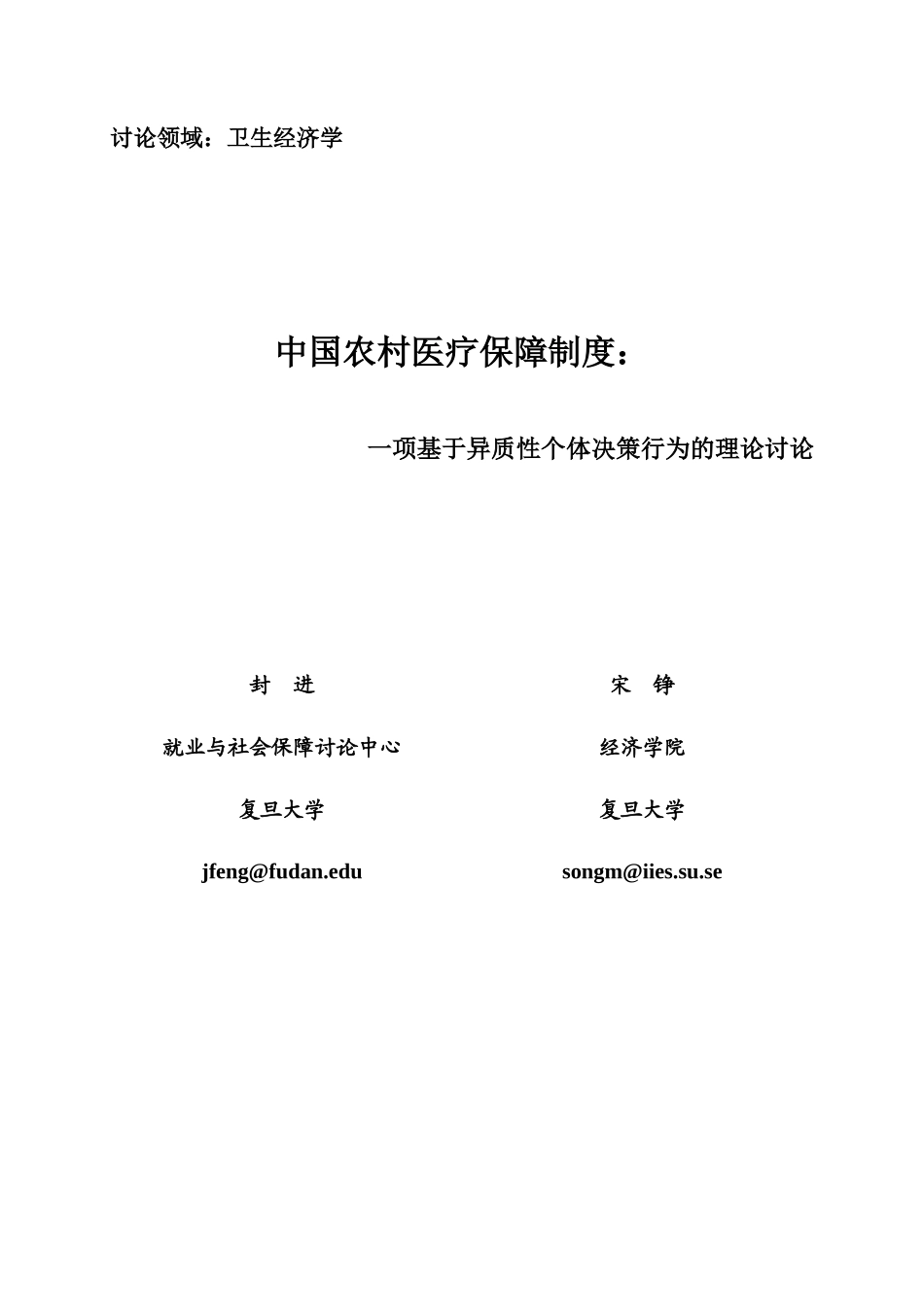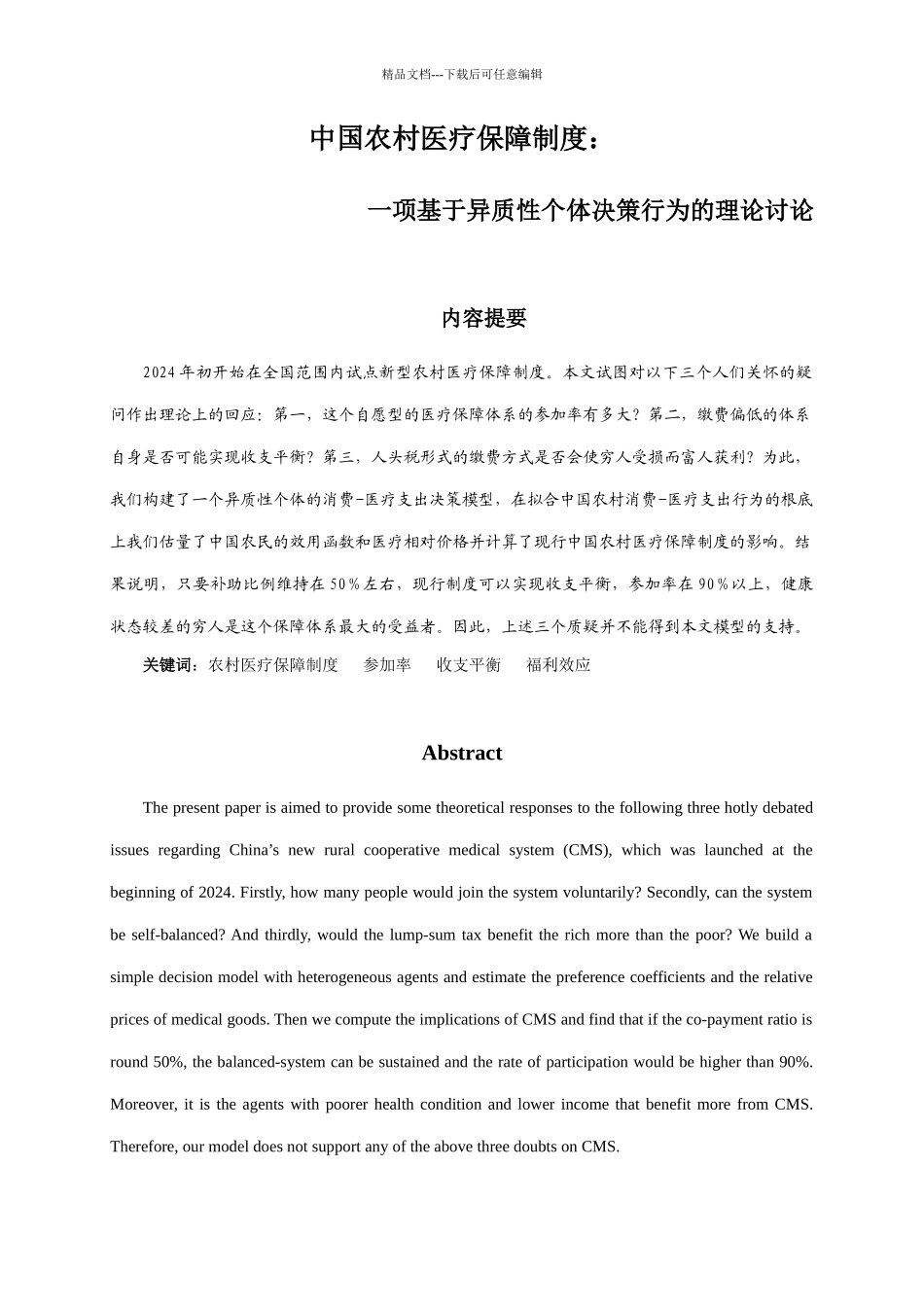讨论领域:卫生经济学中国农村医疗保障制度:一项基于异质性个体决策行为的理论讨论封 进宋 铮就业与社会保障讨论中心经济学院复旦大学复旦大学jfeng@fudan.edu songm@iies.su.se精品文档---下载后可任意编辑中国农村医疗保障制度:一项基于异质性个体决策行为的理论讨论内容提要2024 年初开始在全国范围内试点新型农村医疗保障制度。本文试图对以下三个人们关怀的疑问作出理论上的回应:第一,这个自愿型的医疗保障体系的参加率有多大?第二,缴费偏低的体系自身是否可能实现收支平衡?第三,人头税形式的缴费方式是否会使穷人受损而富人获利?为此,我们构建了一个异质性个体的消费-医疗支出决策模型,在拟合中国农村消费-医疗支出行为的根底上我们估量了中国农民的效用函数和医疗相对价格并计算了现行中国农村医疗保障制度的影响。结果说明,只要补助比例维持在 50%左右,现行制度可以实现收支平衡,参加率在 90%以上,健康状态较差的穷人是这个保障体系最大的受益者。因此,上述三个质疑并不能得到本文模型的支持。关键词:农村医疗保障制度 参加率 收支平衡 福利效应AbstractThe present paper is aimed to provide some theoretical responses to the following three hotly debated issues regarding China’s new rural cooperative medical system (CMS), which was launched at the beginning of 2024. Firstly, how many people would join the system voluntarily? Secondly, can the system be self-balanced? And thirdly, would the lump-sum tax benefit the rich more than the poor? We build a simple decision model with heterogeneous agents and estimate the preference coefficients and the relative prices of medical goods. Then we compute the implications of CMS and find that if the co-payment ratio is round 50%, the balanced-system can be sustained and the rate of participation would be higher than 90%. Moreover, it is the agents with poorer health condition and lower income that benefit more from CMS. Therefore, our model does not support any of the above three doubts on CMS.精品文档---下载后可任意编辑Keywords...


